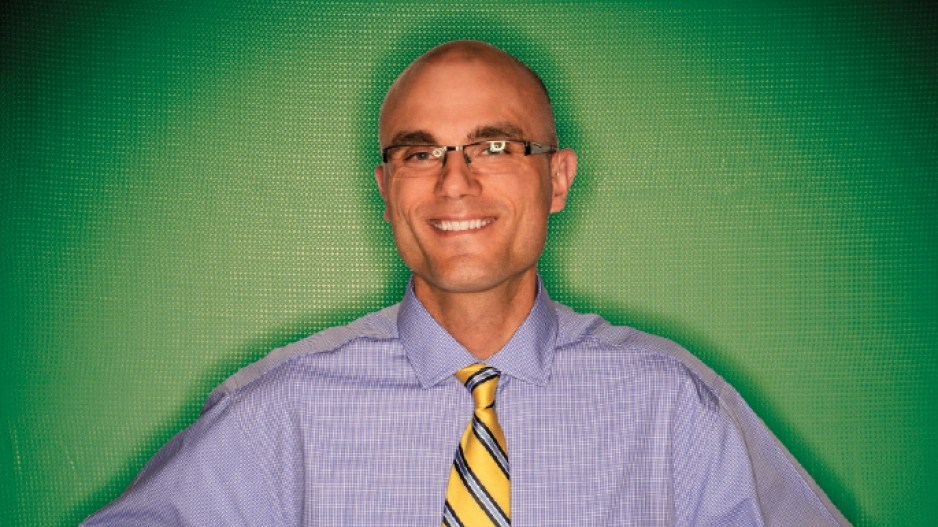Investment in pure science doesn’t always have an immediate or obvious payoff. But the work of Paul Schaffer and his team at the TRIUMF particle physics accelerator at the University of BC is starting to pay dividends for Canada.
TRIUMF is heading off a looming shortage of a radioisotope used in nuclear medicine by developing a process for making technetium-99m (T-99m) in hospital cyclotrons without having to rely on nuclear reactors.
That’s been a boon for Richmond’s Advanced Cyclotron Systems Inc., which is making cyclotrons that can make T-99m in significant quantities. And under Schaffer’s leadership, TRIUMF is creating a spinoff company – ARTMS – which will license the technology and build and install equipment for other countries so they can make their own T-99m.
“I always like to advocate for the economic benefits of fundamental research,” said Schaffer.
“I’m a chemist working in a lab that’s been trusted with a lot of money and basically leveraged the expertise at that lab to innovate a new product that’s going to benefit Canadians. It’s a wonderful testament to how research can have trickle-down economic benefits for the rest of Canadians.”
Born in Toronto, Schaffer came to B.C. to do his undergraduate studies in chemistry and biochemistry, skipped doing his master’s and went straight into a PhD program in chemistry at McMaster University. He stayed on to become a staff scientist at McMaster’s nuclear reactor until 2006, when he was hired as a lead scientist doing research in radiopharmaceuticals for General Electric’s global research division.
In 2009, he was hired by TRIUMF as deputy division head and groomed for the position of head of nuclear medicine.
The Chalk River nuclear research lab in Ontario produces 40% of the world’s supply of T-99m and 80% of Canada’s. It is slated to stop making the radioisotope in 2016. That would leave hospitals in Canada and around the world short on T-99m.
In 2012, Schaffer obtained a $7 million grant on behalf of TRIUMF and three other agencies to commercialize the T-99m production technology.
Schaffer was recently in Italy working with scientists who want to use the new technology to produce T-99m in their own countries.




